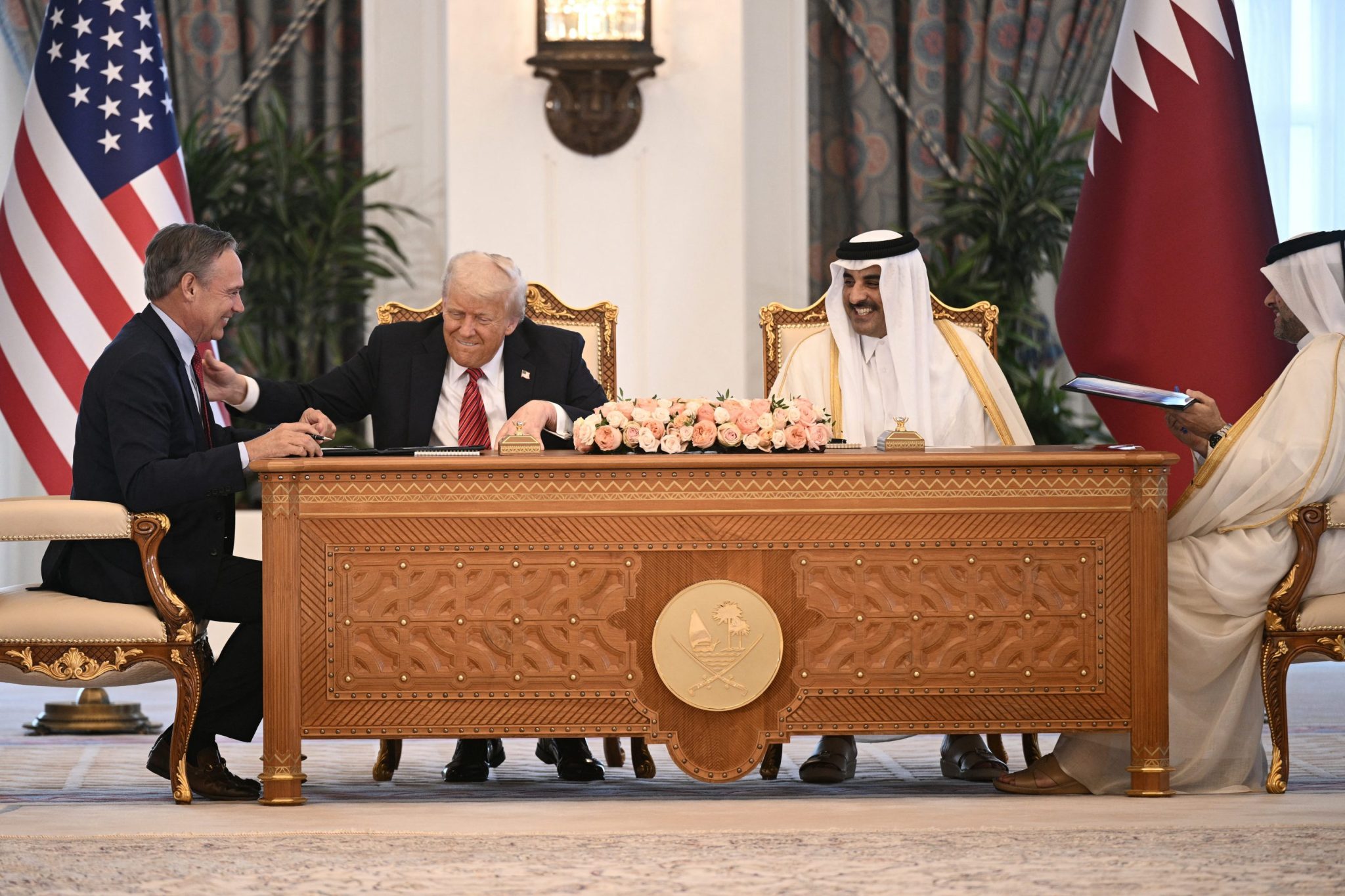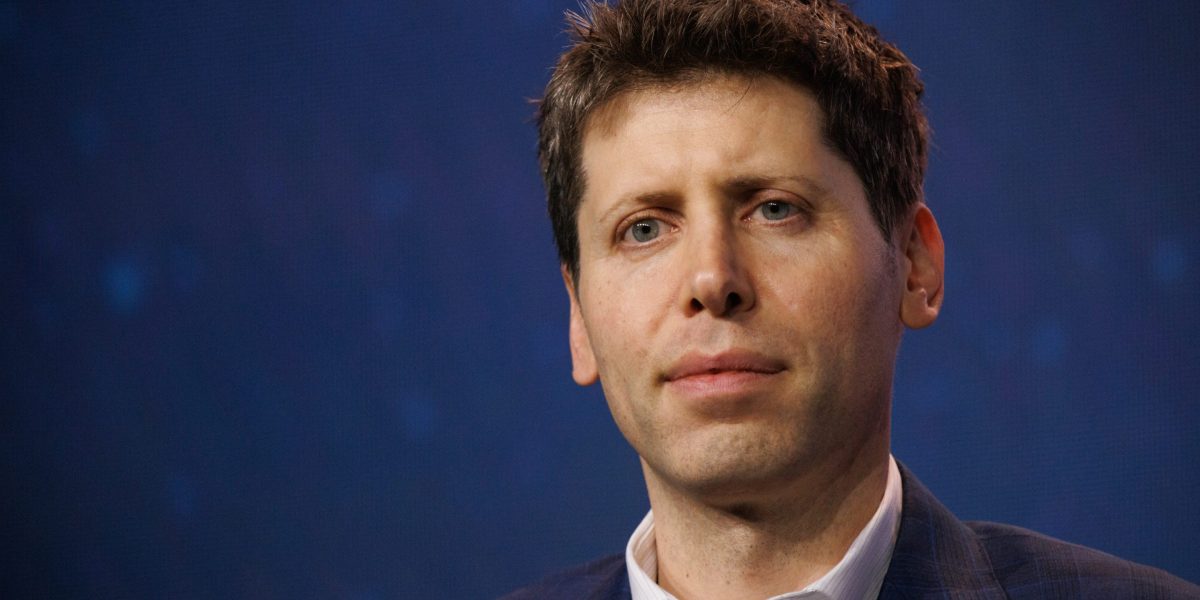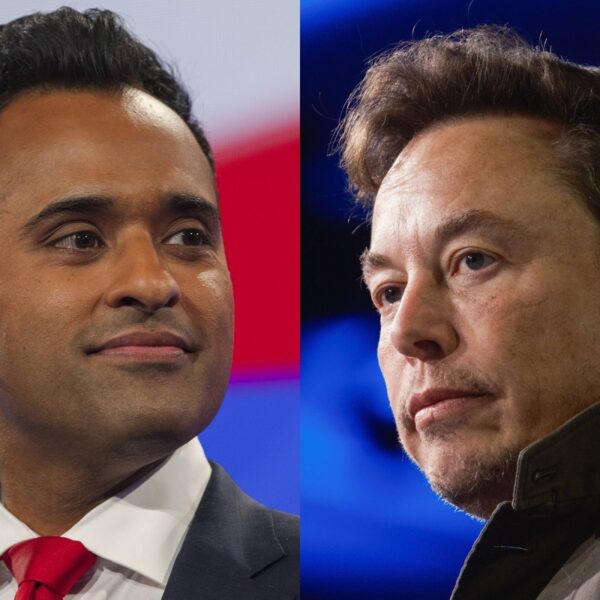
A year after Boeing Co. slogged through a deep executive shakeup and prolonged existential crisis, the US planemaker just landed its biggest-ever aircraft order, propelled by a powerful endorsement from President Donald Trump.
Chief Executive Officer Kelly Ortberg signed an accord for as many as 210 widebody aircraft from Qatar Airways, including the 787 Dreamliner and the larger 777X model with engines from General Electric Co., at a ceremony witnessed by Trump and the Emir of Qatar on Wednesday. The White House said the deal had a value of $96 billion, although customers typically negotiate steep discounts.
The announcement in the marble-clad halls of the Qatari Royal Court gave each of the parties in attendance a big win: Trump is on a mission to the Persian Gulf to pull in trillions of dollars of commercial accords to showcase his dealmaking chops. Qatar and its namesake airline get to cement their relationship with the US by backing the country’s biggest exporter. And Boeing walks away with an order that extends its dominance in a region that’s been a major buyer of its most expensive jets.
Wednesday’s order will see Qatar buying 130 787 Dreamliners and 30 777X aircraft, with an option to take an additional 50 widebody aircraft of either type, according to people familiar with the accord. GE Aerospace said the pact includes more than 400 engines in its largest-ever deal for widebody turbines.
The White House didn’t provide full details of the agreement, and Qatar Airways and Boeing declined to comment.
Ortberg accompanied Trump on his tour to the region, including his first stop in Saudi Arabia on Tuesday, where Boeing also won a smaller $4.8 billion commitment for aircraft from the country’s sovereign wealth fund. Trump congratulated Ortberg after the far-larger deal was signed, touting the pact as a record that would help secure jobs at home.
The two men’s relationship hasn’t always been easy. Trump has openly faulted Boeing for being late providing two new Air Force One presidential jets, ordered during his first term in office. Ortberg has said Boeing has found ways to accelerate the program, which is years behind schedule.
The issue of the delayed presidential plane hung over Trump’s trip, after he confirmed that he was considering accepting a Qatari-owned Boeing 747-8 that’s been decked out as a private plane. Trump said the aircraft would be gifted to the US Defense Department and could be used as a stopgap solution while Boeing builds out the new Air Force One planes, though the idea has been controversially received in both political camps back in the US.
Read More: In Trump’s World, Jets Are Key to Unlocking Political Favors
Ortberg came out of retirement last year to help turn around Boeing, which fell into a deep crisis following a near-catastrophic accident at the start of the 2024 that exposed hair-raising sloppiness at its factories and at a key supplier. Since taking over, he’s faced a debilitating strike by workers, repaired the company’s battered balance sheet with a fresh round of financing and set Boeing on a path to increase output of its all-important 737 Max and the 787 Dreamliner.
Investors cheered on the accord in Doha, with Boeing shares rising as much as 3.1% to their highest in 15 months.
The historic order lauded by Trump — in the wake of a trade thaw with China — has fueled investor confidence in Boeing’s stock and bonds, more than recovering the losses the planemaker suffered in the wake of the President’s so-called “Liberation Day” trade broadside. It’s also a reminder of the manufacturer’s exposure, both good and bad, to the mercurial president and his whipsawing policies on trade.
Boeing shares have risen 50% after hitting an early April nadir of $128.88 as tariffs and counter-tariffs squeezed suppliers and prompted China to retaliate by halting imports of the US-made jets. With the gains during Wednesday’s trading session, the company’s stock is at the highest price since February 2024.
“Boeing is starting to recapture operational momentum after an extended strike and door-plug blowout hamstrung performance last year for its more than $50 billion of bonds,” Matthew Geudtner, a Bloomberg Intelligence credit analyst, told clients Wednesday. “Thawing trade tensions, ample liquidity to withstand near-term cash burn and evidence of gains in production and delivery cadence can help sustain performance for the OEM’s bonds, which have outpaced peers this year.”
Airlines in the Persian Gulf have been among the biggest buyers of long-range aircraft. Emirates, Qatar Airway’s larger regional competitor, ordered more than 100 Boeing planes at the last Dubai Air Show in 2023. In 2014, Emirates also ordered 150 of Boeing’s 777X model, which at the time was a record purchase.
Qatar has long been a loyal Boeing customer, though the carrier also flies a major fleet of Airbus SE short- and longhaul aircraft. Widebody aircraft have been in higher demand since the pandemic as global routes reopened and airlines sought to replenish their aging fleets.
Read More: In Trump’s World, Jets Are Key to Unlocking Political Favors
Ortberg was accompanied in Doha by Stephanie Pope, the head of Boeing’s commercial aircraft business. Both executives assumed their new roles as part of a management shakeup last year that swept out the old guard around former CEO Dave Calhoun.
The commitment solidly sways Qatar’s focus into the Boeing camp, though the airline is also considering a smaller number of the Airbus A350 aircraft, Bloomberg reported last week. That deal, should it materialize, is likely to be announced during the Paris Air Show in June.
Qatar operates a mix fleet of more than 200 narrowbody and widebody jets from both manufacturers. It operates more than 50 of the older Boeing 777 model that many carriers are keen to replace.
This story was originally featured on Fortune.com














